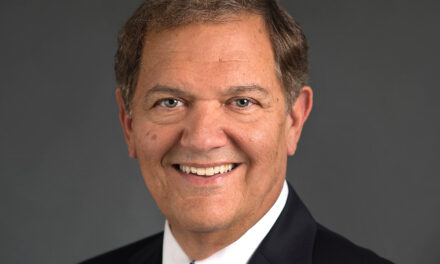
Loyola Medicine launches Women’s Heart Health Program
Loyola Medicine has launched a new women’s heart health program—offering preventive strategies, screening and innovative treatment protocols and strategies, including complementary medical approaches to care—geared toward the specific needs of women.
Cardiovascular disease is the number one killer of women in the U.S., according to the U.S. Centers for Disease Control (CDC). Non-Hispanic white and Black women are at highest risk for heart disease. In addition, diabetes, mental stress/depression, obesity and smoking tend to play a larger role in the development of heart disease in women compared to men.
“Historically, heart disease was only thought to only affect men,” said May Bakir, MD, a non-invasive cardiologist who is the medical director of the new program. “Now, we recognize that there are unique features of heart disease in women. The women’s heart health program at Loyola includes a multidisciplinary team of specialists adept at identifying and treating the symptoms and risk factors associated with heart disease in women.”
The most common type of heart disease is coronary artery disease, which affects blood flow to the heart and can cause a heart attack. Risk factors for heart disease include high LDL (low-density lipoprotein) cholesterol, obesity, inactivity, diabetes and smoking.
Often, heart disease manifests itself differently in women, and may go undiagnosed until symptoms are acute. Both men and women may experience chest pain, sweating, shortness of breath, arm, neck, jaw or back pain while experiencing a heart attack. Women, however, may also feel extreme fatigue, lightheaded or dizzy. Other common symptoms in women are nausea, vomiting, heart palpitations and the onset of sudden confusion.
Preventive screening and care are offered at Loyola University Medical Center in Maywood, and at various Loyola locations throughout the region. New patients at the Loyola women’s heart health program are asked to complete a questionnaire prior to their first appointment to pinpoint individual risk factors for heart disease. This personalized assessment—along with each patient’s medical history and a complete cardiac exam—becomes the basis for a heart disease prevention and treatment plan, specific to each patient.
“The program uses a multidisciplinary, comprehensive approach to heart care – that means you can see all the specialists you need under one roof, including cardiologists, nurse practitioners, neurologists, vascular surgeons, dietitians and a genetic counselor,” said Dr. Bakir. “Our experts will help you navigate and schedule any follow-up appointments close to home to ensure consistent care.”
“The women’s heart health program is an important addition to Loyola’s nationally ranked cardiology program, offering the highest level of expert care specifically geared toward the unique needs of women,” said Lowell H. Steen Jr., MD, chair of cardiology at Loyola Medicine. “We are thrilled to announce this new program under the direction of Dr. Bakir.”
Loyola Medicine’s cardiology and heart surgery program is ranked 48th in the nation by U.S. News & World Report.
For more information about the Loyola women’s heart health program, visit: loyolamedicine.org/heart-vascular/womensprogram.






